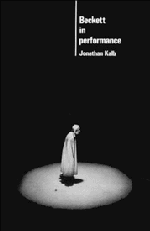Summary
Reviewing Happy Days in 1961, Richard Gilman wrote:
That question of effectiveness, far more than the meaning of the plays – which are really far less arcane than we have been led to think – has always been to me the interesting one to ask about Beckett's theatre. How does it manage to achieve its high intensity and complete conviction – how, really, does it reach us – after its apparent abandonment of most of the traditional means of dramatic communication?
The question is as elusive as it is complex – it changes with each new Beckett text, and in any case there are few enough critical conventions adequate to a discussion of why any theater is effective – but anyone who has seen one of the dozens of exceptional Beckett performances in the past twenty-five years (Jack MacGowran in Beginning to End, David Warrilow in The Lost Ones, Billie Whitelaw in Rockaby, for example) will understand the impulse to continue asking it. It is the kind of question that is never answered with finality, but as data accumulate we can rephrase it in more specific ways.
Actors such as MacGowran, Warrilow and Whitelaw are habitually called “consummate,” “ultimate,” “quintessential” Beckett actors, but what exactly do those terms mean? How do these actors produce the effects for which they are praised, and precisely what are those effects? How do their techniques differ from those used in other theater? Do they differ?
- Type
- Chapter
- Information
- Beckett in Performance , pp. 1 - 6Publisher: Cambridge University PressPrint publication year: 1989



